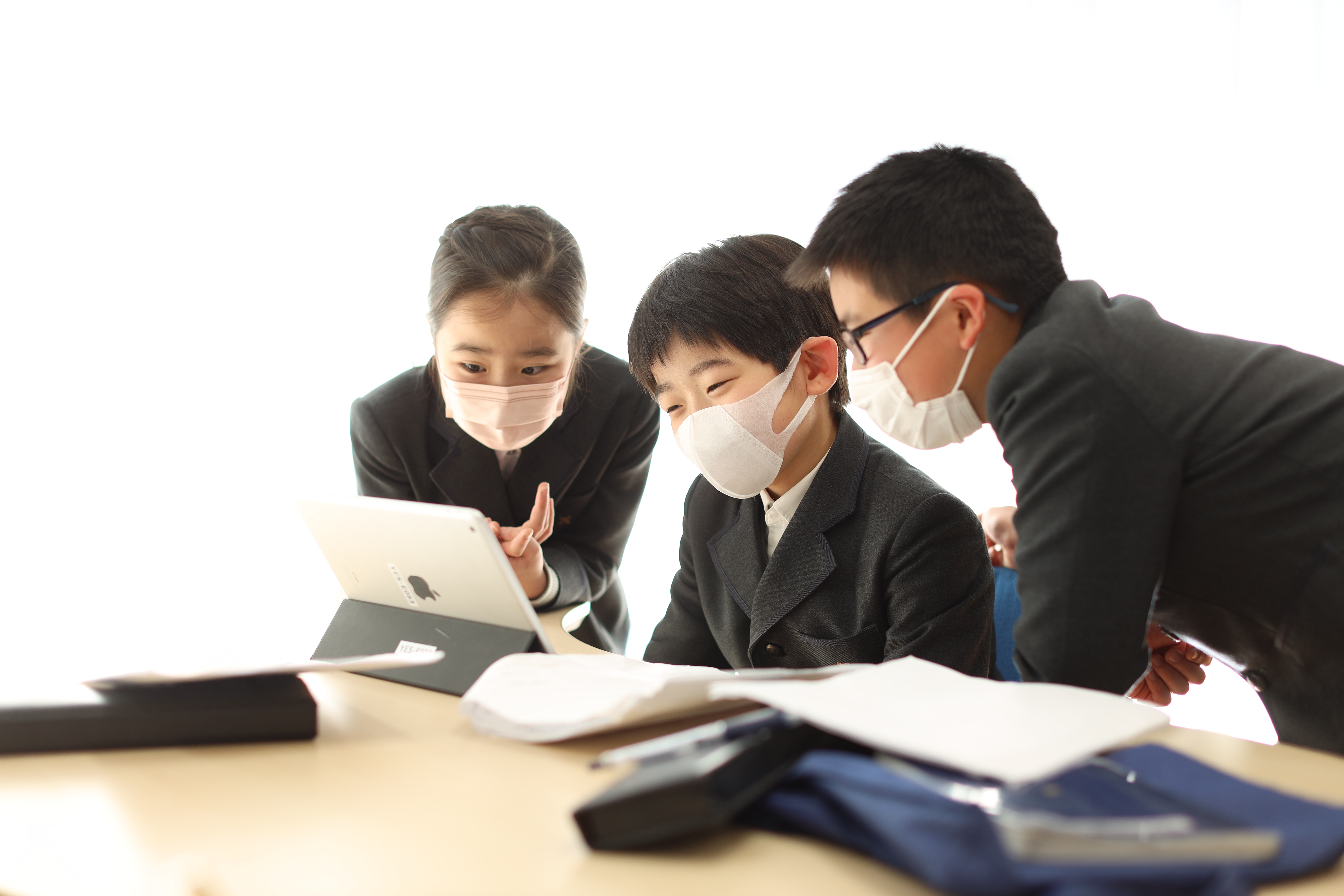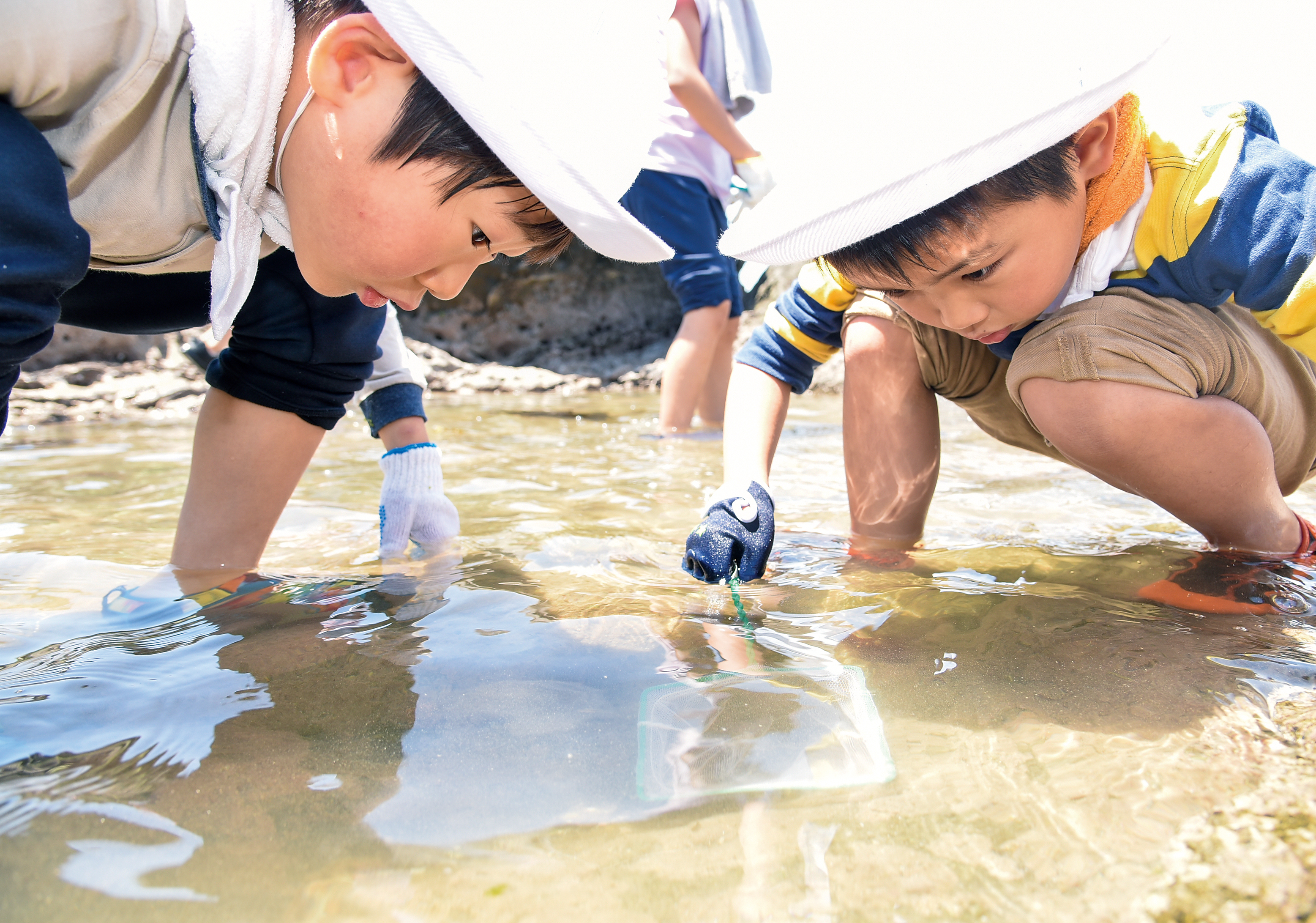- HOME
-
Aims of Keio Yokohama Elementary School
Aims of Keio Yokohama Elementary School
Aims of Keio Yokohama Elementary School
Keio University was founded as "Keio Gijuku" in 1858, but continued to develop in stages until 1898. That was when it established the Keio system of primary to university education that still exists today. The pace of social change has continued to quicken in the space of more than a century since then; now, one of Keio's strongest needs is to address the growing tide of globalization. The coming age will doubtless be one of ever greater complexity and upheaval, in which different values and interests will coexist. At the same time, the environment in which we raise our children is beset by a host of issues, with reports of a decline in the functions of family and community.
At Keio Yokohama Elementary School, we aim to create a new kind of education, designed to nurture leaders of society who will embody the spirit of independence and self-respect. In doing so, we will pay heed both to the environment surrounding children today and to the future age when they will be active as members of society. Of course, they are at an age when their basic qualities as human beings are being developed. As such, it goes without saying that our central focus must be on universal and timeless values of education, rather than just pandering to the new.
During the younger years, we focus our energies on cultivating sound bodies and minds, as well as the qualities of "integrity, honesty and kindness." Integrity means thinking about personal responsibility and striving earnestly to fulfil it. As the children grow older, this "personal responsibility" will expand into the public sphere, but the habit starts in childhood and the things they do in everyday life. Throughout the six years of primary education, we foster qualities such as intellect, physical fitness, willpower, self-expression, consideration for others, the ability to cooperate with others who have different values, and an awareness of social responsibility and ethics.
For this reason, our day-to-day education is developed on the principles of "Learning from experience," "Learning from personal challenges" and "Learning the ability to communicate," while naturally placing emphasis on basic learning.
By the time the children leave our school, they are expected to have acquired certain basic qualities. In the words of Keio's founding spirit since the time of Yukichi Fukuzawa, these qualities can be summed up in two phrases: "Healthy body, active mind" and "The spirit of bold action and indomitable perseverance." This means being physically robust, rich in willpower and vitality, unfailingly positive in everything they do, and full of courage, backed by the intelligence to think and judge for themselves. We consider these qualities essential for resolutely tackling the difficulties they will face in a future age of increasing complexity and upheaval.
Yukichi Fukuzawa said that "the home is a school of learning," and indeed, life at home has a major role to play in children's education. While they are enrolled in our school, we hope the home environment will be enriched as well.



At Keio Yokohama Elementary School, all departments and teachers collaborate and cooperate in developing daily activities based on the three principles of "Learning from experience" "Learning from personal challenges" and "Learning the ability to communicate."
Learning from experience
the capacity to actively learn from experience
Whether in class or extracurricular activities, in activities inside or outside the school, we place emphasis on real observation and experience of natural phenomena. The children will only understand things properly by actively observing and experiencing them, not by merely accepting abstract concepts and theories as they are. And in the process of repeating this, they develop the insight with which to grasp the essence of things.
Children these days have fewer direct experiences of life and play, owing to a number of factors - the nuclearization of the family, diminishing space in which to play freely, and the spread of virtual reality games, to name but a few. For this very reason, it is now more important than ever to give them a wealth of real experiences linking to daily life and creative play.
Learning from personal challenges
the strength to overcome personal challenges
We place value on teaching children to set and achieve ever higher goals for the things they do well, while positively tackling things they cannot do so well, and thus gradually mastering them. Children gain confidence when they are good at and enjoy an activity, but it is important to extend that confidence into other activities - for example, from confidence in sports to intellectual activities. Repeating this process creates strong willpower and the self-confidence that anything can be achieved, however difficult.
It has often been claimed that children are more easily discouraged and unable to confront adversity these days. But if they are to be leaders in the coming age, they will be expected to tackle difficulties with determination and resolve them without giving up.
Learning the ability to communicate
the ability to think critically in an open-minded way and communicate clearly
We cultivate skills in reading and writing, as the foundation for all thoughts, and skills in listening and speaking as an aid to collaborating with others. We do this by acquainting the children with good books and giving them practice in expressing their thoughts in words that can be understood by others.
In recent years, there has been a decline in reading and writing skills, even among university students. There is also a growing tendency to depend too easily on unreliable information found on the Internet and elsewhere. In this environment, the ability to communicate is becoming increasingly important across all academic subjects, both as a basis for reliable learning and as a foundation for logical thinking. To link this to an ability to understand phenomena and identify and solve problems, we invest energy not only in linguistic communication in the form of literacy, but also in handling numbers and measurements. In this way, we cultivate a basis for understanding the vocabulary and grammar of science.




